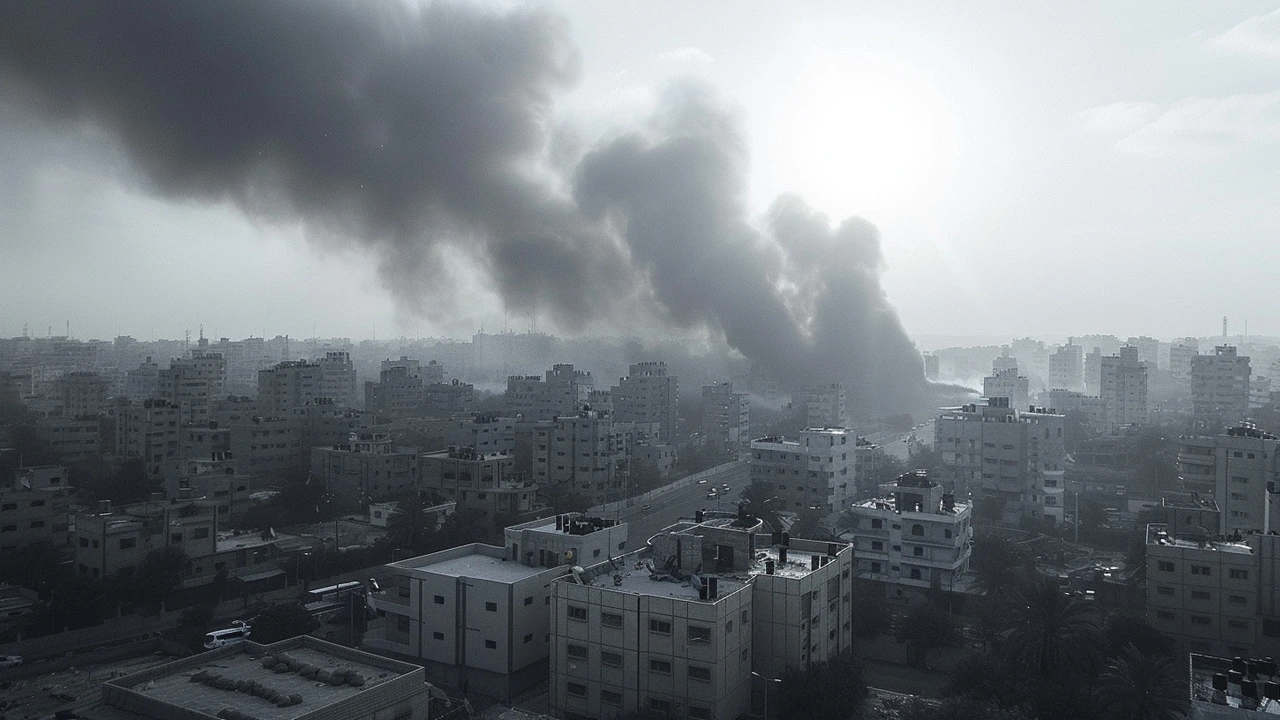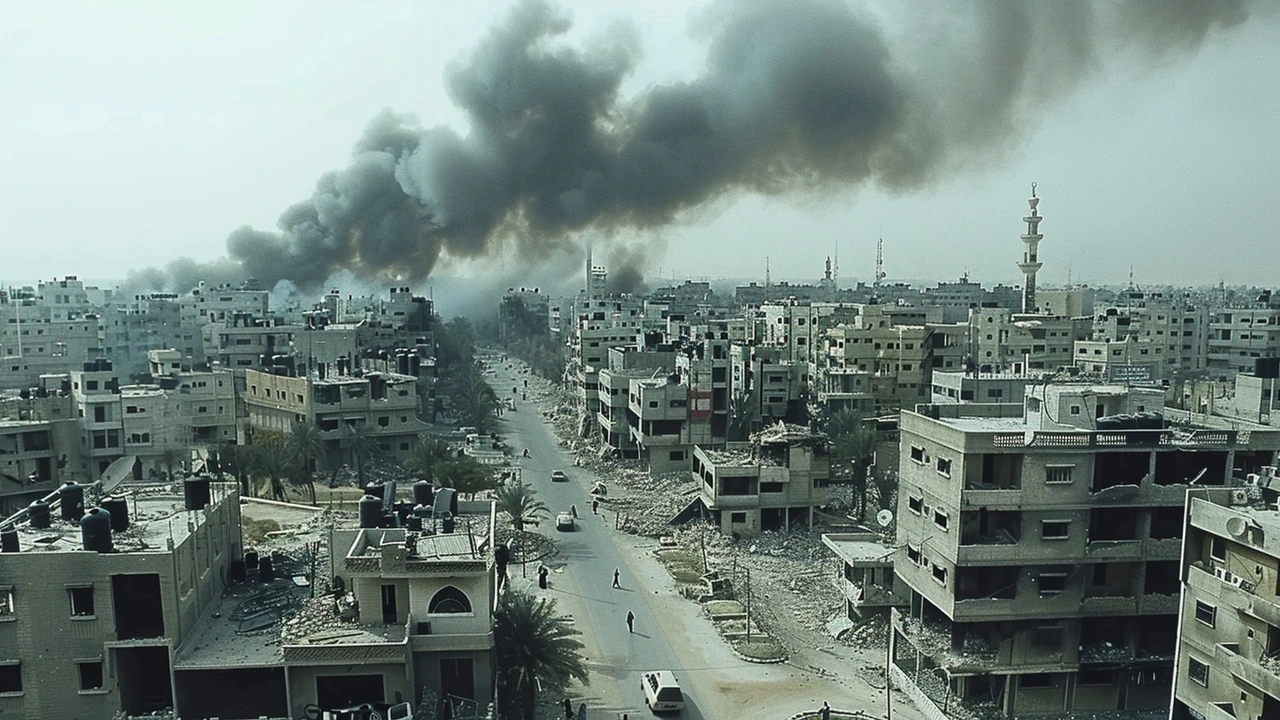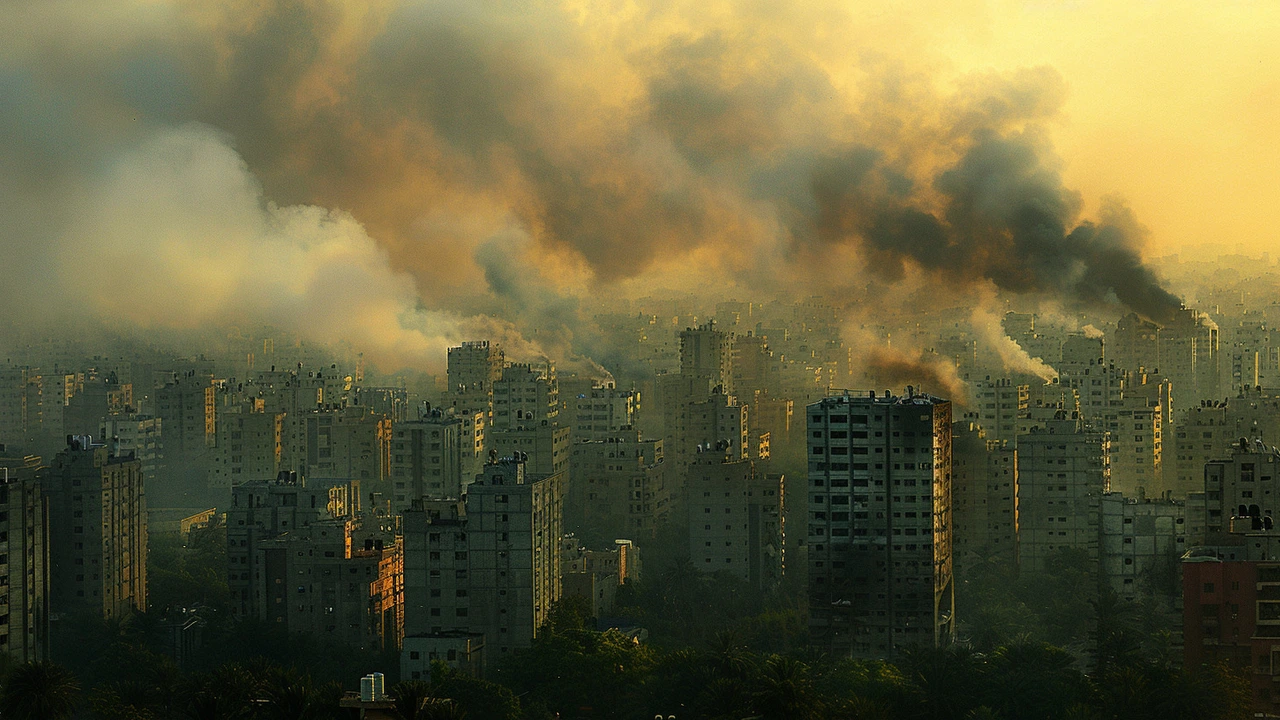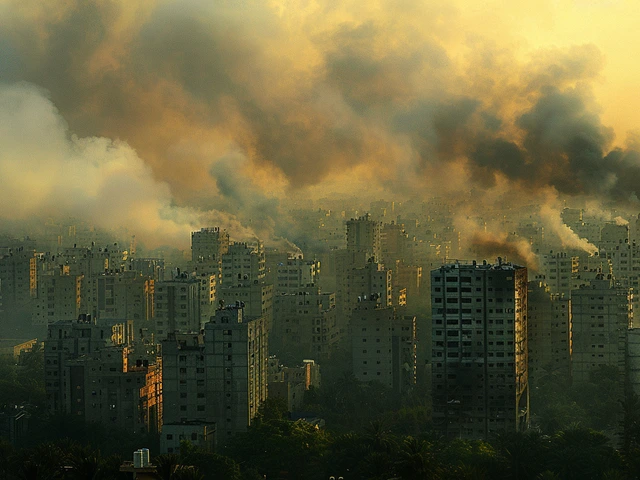Deadly Israeli Strike on Rafah Tent Camp Sparks International Condemnation
Israeli Attack on Rafah Tent Camp Claims Lives of 45 Palestinians
On November 3, 2018, the Israeli military launched an airstrike on a tent camp in Rafah, located in the Gaza Strip. The strike resulted in the tragic deaths of 45 Palestinians, including women and children. This incident marks one of the deadliest in recent years, leaving a significant number of those wounded in a grave state. Medical facilities in Gaza have been overwhelmed, grappling with the influx of over 150 injured individuals needing urgent care.
Context of the Protests
The attack took place during a skirmish near the heavily fortified Gaza-Israel border. Tensions have been high since the onset of the 'March of Return' protests starting March 30. These protests see Palestinians demanding the right of return to their ancestral lands, now within the borders of modern Israel. These demonstrations have recurrently faced brutal backlash, resulting in the overall loss of over 200 Palestinian lives, accompanied by thousands of injuries over recent months.

Global Outcry and Condemnation
The international community swiftly responded to the Rafah tent camp attack with widespread condemnation. The United Nations, European Union, and multiple human rights organizations have called for an impartial and thorough investigation into the incident. The global sentiment stressed that the use of force must be regulated strictly and exercised with restraint. Human rights advocates are underscoring the urgent need for a peaceful resolution and meaningful dialogue to address the longstanding Israeli-Palestinian conflict.
International Reactions
Nations such as Turkey, Iran, and Egypt have explicitly condemned the attack. Preliminary statements from these governments denounced the excessive use of force against civilians. There have been calls from various quarters for economic sanctions against Israel, aimed at pressuring its government to alter its approach to dealing with the protests and to ensure civilian safety.

Looking Forward
In the wake of this latest violence, concerns over the escalating situation in Gaza and neighboring regions continue to grow. Efforts to mediate peace have struggled to gain traction amidst the enduring hostilities. Various international bodies and activists continue to push for sustained diplomatic engagements to end the enduring cycle of violence.
Impact on Civilians
The Rafah tent camp incident has forced the world to reexamine the human cost of the ongoing conflict. Many of the victims were non-combatants, leading to significant distress and furthering skepticism about military engagement in densely populated civilian areas. The broader Palestinian populace is now faced with heightened fear and a renewed sense of vulnerability.
With civilians bearing the brunt of deadly confrontations, the urgent call for humanitarian intervention is intensifying. Aid organizations are scrambling to provide medical assistance, food, and shelter. Yet, the persistent blockade and restricted access to the Gaza Strip complicate relief efforts, exacerbating the dire situation on the ground.
The Role of Media
Global media outlets have played a crucial role in bringing attention to the devastating aftermath of the airstrike. Journalists and news photographers on the ground have captured harrowing images and narratives that personalize the ongoing struggle. The vivid portrayal of life in Gaza serves to humanize the political discourse, ensuring the stories of the affected reach a global audience.
Thus, the role of media becomes indispensable in shaping public opinion and influencing political narratives around the Israeli-Palestinian conflict. Through sustained coverage, the media provides a platform for voices from Gaza, often muted amidst the clamor of international geopolitical dynamics.
Conclusion: Urging Peaceful Resolutions
The international community’s reaction to the Rafah tent camp attack underscores a collective desire for a shift towards diplomatic solutions. Calls for accountability, transparency, and humanitarian aid form the cornerstone of this discourse. However, the path to a peaceful resolution remains multifaceted, requiring concerted efforts from all stakeholders involved.
The aftermath of this tragic event casts a long shadow over the prospects for peace in the region. It signals a critical juncture for policymakers and civil society to redouble efforts in seeking enduring and just solutions to one of the world's most protracted conflicts. In the hearts of the affected and the conscience of the global community, the message is clear: the sanctity of human life must guide our collective actions.
The world stands at a crossroad, with an urgent need to transcend hostilities and embrace constructive dialogue. Only then can the vision of a peaceful and just future for Palestinians and Israelis alike be realized.






